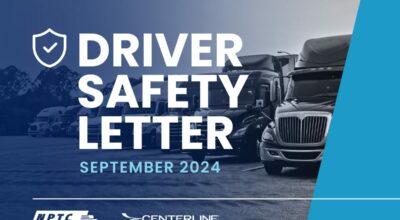 Safety Letter
Safety Letter
NPTC Safety Article- September 2024 -Marijuana Testing
U.S. Department of Transportation Secretary Pete Buttigieg confirmed that his agency believes the U.S. Department of Justice's proposal to reschedule marijuana from a Schedule I to a Schedule III drug will not change the current requirements for testing transportation workers, including truck drivers, for marijuana.